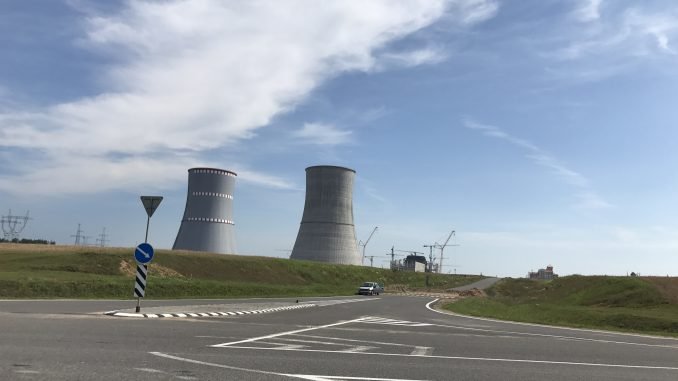
Skvernelis discussed the outlook for bilateral relations with the foreign, energy, economy, transport and environment ministers at a special meeting convened for the purpose.
“Our position on Astravyets remains unchanged. We will not back down on this. It is not an economic and political issue. It is our security concern,” Deividas Matulionis, the advisor, told BNS.
“However, the Astravyets issue should be separated from others — if there is progress, it should be noted and appreciated, and if not, there will be no concessions. We cannot forget that economic ties with Belarus are rather important for us,” he said.
Matulionis said that the Cabinet members discussed the situation regarding Moscow’s pressure on Belarus to export oil products through Russian ports rather than via the Baltic countries, adding that Lithuania does not see any major threat in this, at least for now.
“We are confident that we offer the most favorable economic conditions and we do not see any major threat. Our position is that we cannot politicize such matters, Belarus is a sovereign state and it must decide based on its economic interests,” he said.
According to the advisor, the ministers also discussed the Zapad 2017 military exercise that Russia and Belarus will hold next month. In his words, Lithuania expects Belarus to ensure that Western countries can observe the war games.
Lithuanian officials say that the nuclear power plant that Russia’s state corporation Rosatom is building in Astravyets, some 50 kilometers from Vilnius, falls short of safety standards. Minsk categorically rejects the criticism.
In an effort to hinder the project, Lithuania plans to bar access for the plant’s electricity to its market and calls on other countries in the region to join the initiative.
Diplomats say that they currently see no signs that the disagreement over the nuclear power plant or Russia‘s pressure may be affecting Belarusian freight shipments via Lithuania.
Lietuvos Geležinkeliai handled a total of 28.99 million tons of freight in January through July this year, up by 6.5 percent year-on-year, including 1.224 million tons of transit oil shipments via the port of Klaipėda. Data on freight shipments by individual countries are not available.

Be the first to comment